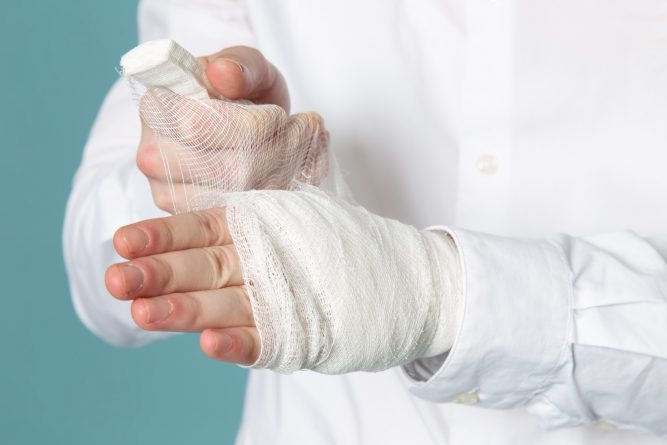The lone star state has no shortage of critters that can leave bothersome bites, especially during the summer months. Whether you reside in Austin, San Antonio, Houston or elsewhere, here are some popular insect bites in Texas to watch out for!
Got the ‘Itch’?
Summer is approaching, and with it, so many exciting areas of enjoyment! From warmer weather, family plans, and more opportunities for outdoor activities, what’s not to love about the sunny months? If you’re a Texan however (or a native of another bug-heavy state), then you know that summertime also brings about swarms of pesky insects that thrive on taking a bite out of….us!
The good news is the majority of bug bites, while bothersome, are usually harmless to most. However, one can never be too careful! Common bug bite symptoms include redness, itchiness, swelling, and in rare cases physical attributes of an allergic reaction. So, regarding insect bites in Texas, which are most common? More importantly, which ones are more serious?
Most Common Insect Bites in Texas
Let’s dive (or buzz!) into the most commonly experienced bites most Texans are exposed to. Later in this article, we’ll also provide some quick acting tips on how to treat them.
- Bees and Wasps: While both may not pose a risk of a serious reaction, the pain associated with these bites is unpleasant to say the least! The more aggressive of these are hornets, paper wasps, blue faced wasps and yellow jackets.
- Spiders: Especially with the buzz on the infamous brown recluse bite, which is extremely serious, most spider bites are harmless but potentially painful. Of the 900 species of spiders in Texas, the brown recluse, black widow, and tarantula bite are the most serious.
- Ticks: In Texas, the dog tick and the black-legged tick are the most common, and both can potentially pose a threat to humans. Symptoms of a tick bite may not appear for up to 3-5 days after exposure.
- Head Lice: Head lice can occur year-round and encompass a variety of wingless insects that spend their tiny lives exclusively on the human scalp. What’s worse, humans are the only known host of this easily-spread parasite.
- Mosquitoes: These pesky insects are a friend of absolutely nobody! Mosquitos thrive in warm, humid, and damp environments, which make them a dreaded fiend to expect as the summertime rolls around.
- Scorpions and Centipedes: While scorpions usually reside under rocks, wood, and home litter, the centipede prefers humid and damp environments. While both stings are painful, most are usually harmless.
Quick-Acting Bite/Sting Treatment
- Bees and Wasps Stings: After removing the stinger, clean the area with soap and water. Pat dry, then apply a cold pack for 15-20 minutes as needed.
- Spider Bites: Similar to a wasp sting, clean the area, pat dry, then apply a cold pack. Elevate the bite if necessary and monitor symptoms afterward.
- Ticks: Using tweezers, grasp the tick at the surface of the skin and pull up with even pressure. Clean the bite with rubbing alcohol and soap.
- Head Lice: With head lice, notify your preferred physician immediately. They will likely prescribe a medicated shampoo and permethrin 1% lotion.
- Mosquitos: After washing the area and applying ice as needed, try gently applying a mixture of baking soda and water to reduce the itching and swelling.
- Scorpions and Centipedes: For Centipedes, apply heat or immerse the bite in warm water as soon as possible. For scorpion stings, use a cold compress. Take over the counter pain relief for both, and closely monitor the symptoms.
When to Seek Medical Attention
These home remedies are helpful for a quick fix, however, will not suffice in the event of a more serious reaction or bite. For bee and wasp stings, it is extremely important to watch for allergic reactions, such as throat closure or more than usual swelling (especially if outside the affected area). For spider bites, monitor the area daily with treatment to see if symptoms worsen, or if any other symptoms are present such as nausea, vomiting, dizziness, or fever, seek medical help.
For ticks, it is important to not squeeze or squish the tick if still in the skin, as such can cause infection. For centipede and scorpion bites, should you be so unlucky to run into one of these, call your doctor or physician if you experience any severe symptoms or significant swelling. Contrary to popular belief, most scorpion species are non-venomous with the exception of the black scorpion. And for mosquitos, we recommend a strong Texas slap or flick!
If you’re seeking medical treatment for insect bites in Texas, especially for worsening symptoms, Next Level Urgent Care is equipped to assess, treat, and care for your unique case. Remember, we have convenient locations in Austin, San Antonio, Houston, and Beaumont, all of which can be bug-bite central this time of year!
![NL Wordmark [Gradient] NL Wordmark [Gradient]](https://www.nextlevelurgentcare.com/wp-content/uploads/elementor/thumbs/NL-Wordmark-Gradient-7fm1iv6f0zylwqrxpy8kifrnrzsluqzzzofvqvs6smo.png)
